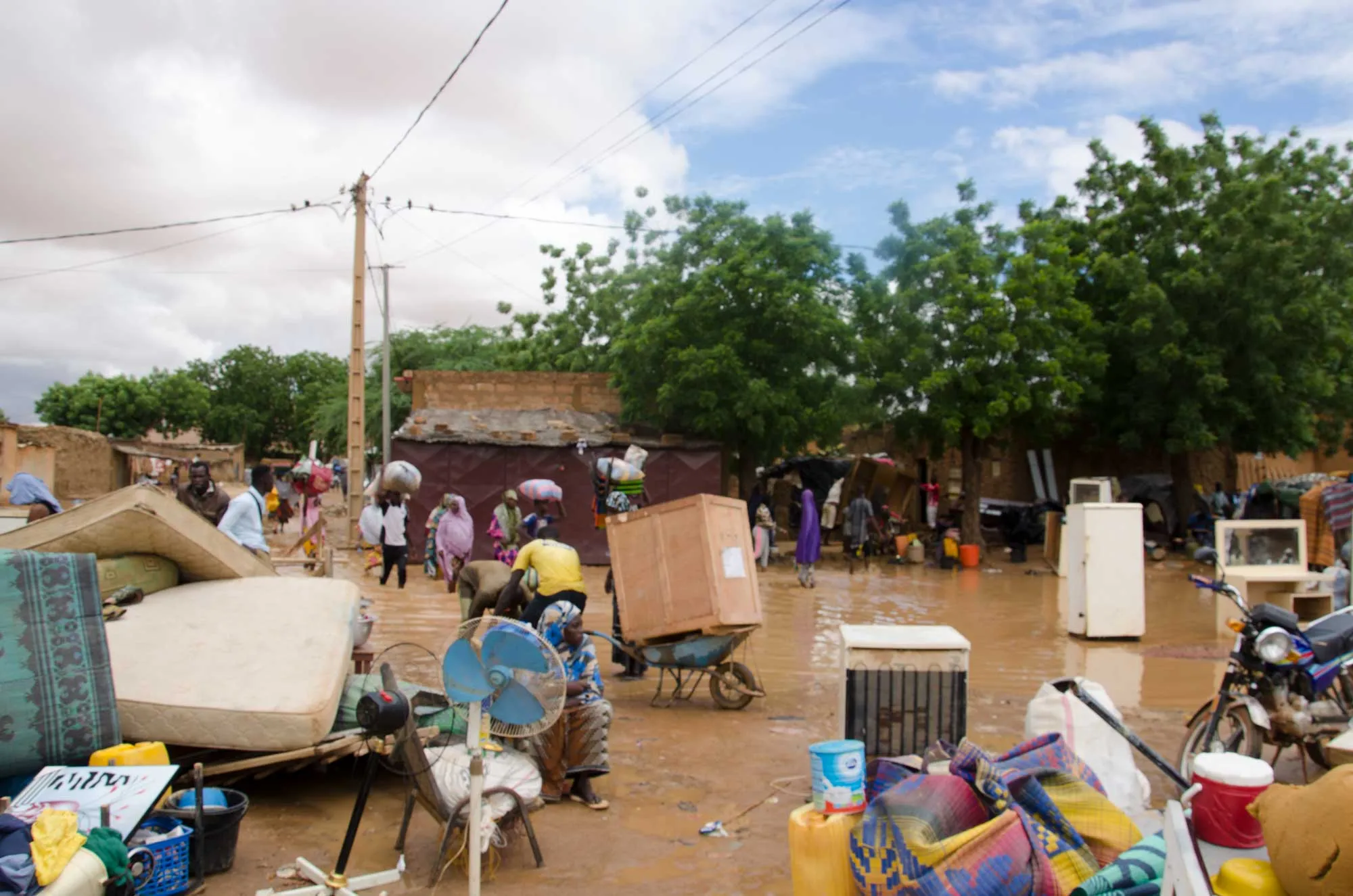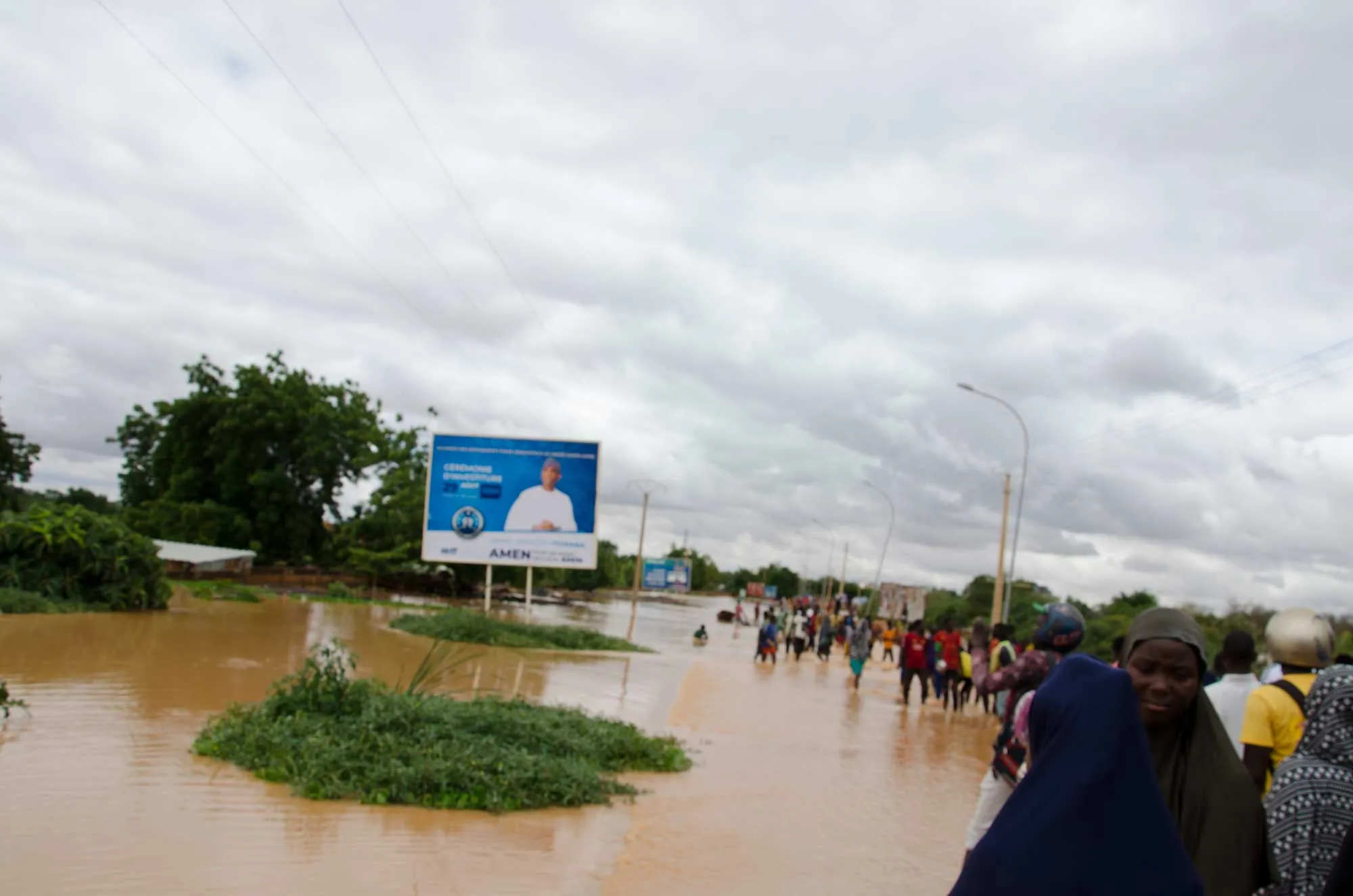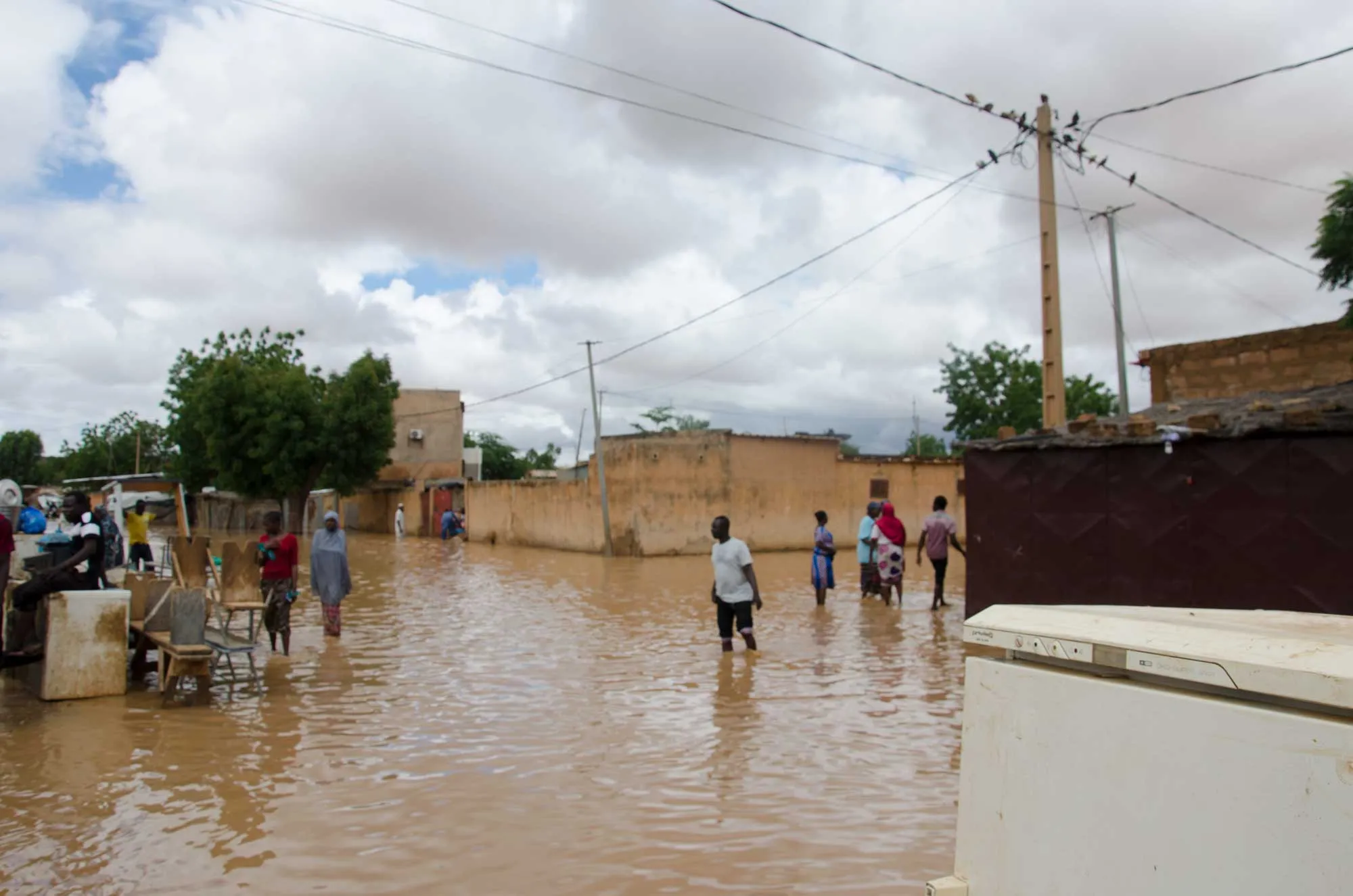Torrential rains in recent weeks have caused deadly and destructive flooding across Niger that has claimed lives, destroyed property and left more than 432,000 people in need of shelter, water, food and essential items.
Sixty-five deaths have been recorded, more than 36,000 houses have collapsed, and more than 22,200 acres of farmland destroyed. Maradi, Agadez and Niamey are the most affected regions. The Niger River is overflowing, dams and dikes have burst, and huge amounts of water are engulfing people’s homes, farms and property without warning. In the capital Niamey, where CARE Niger is headquartered, whole neighborhoods are underwater.
“All the houses fell down and the cement houses are full of water. No house is in a good state. Our house is completely flooded,” says Hadjo Issa, a mother of four from Karadjé. She used to make a living by selling juice, before the floods destroyed her home and fridge.
“The walls fell down, and the water was rising from under us.”
CARE teams are on the ground and responding in Niamey with cash transfers to try to help up to 750 households buy food and other essential supplies. CARE is also supporting sanitation by building mobile or temporary latrines, including gender-sensitive toilets for women and girls, for people sheltering in public buildings.



